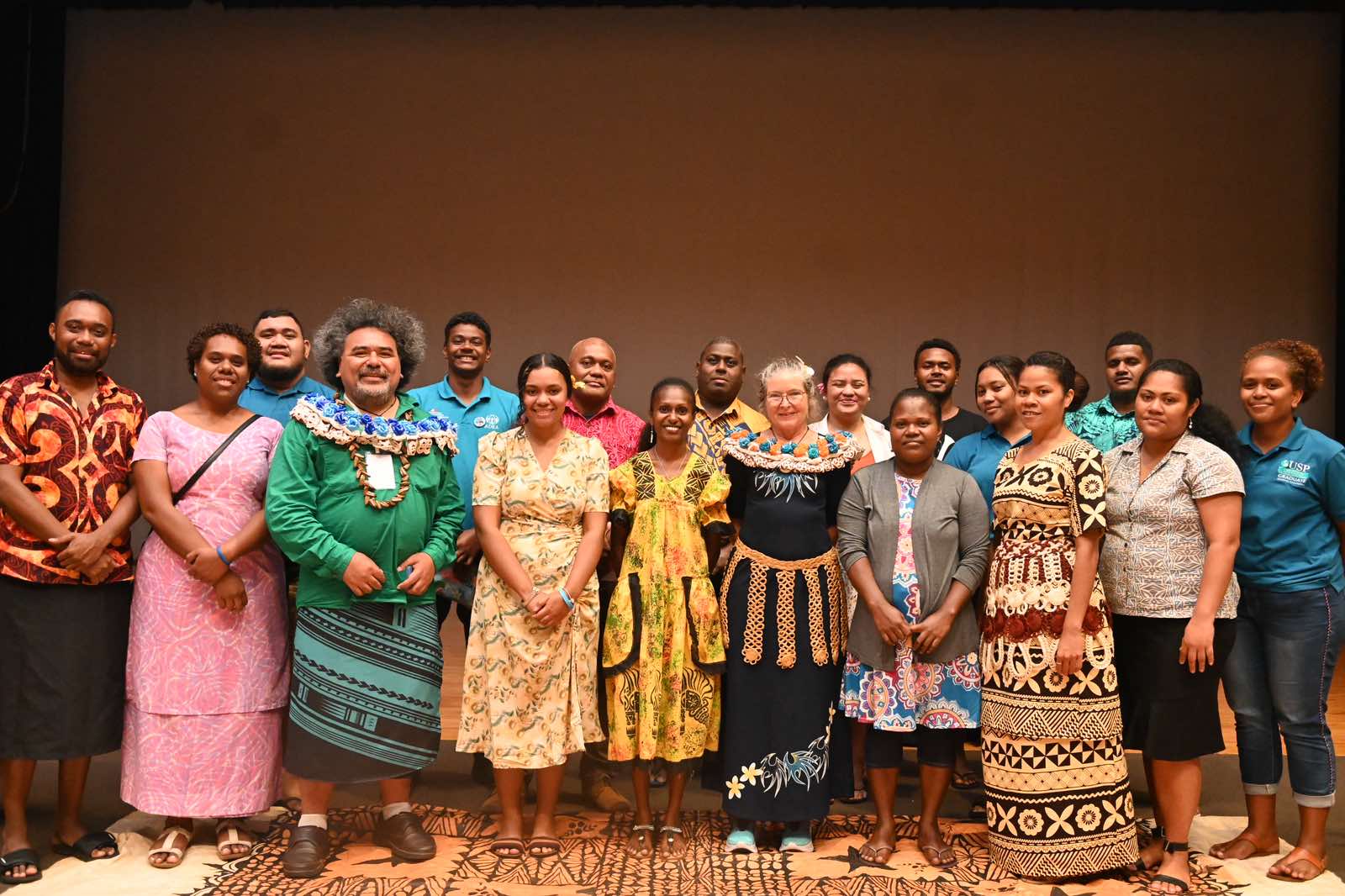USP PACRES: Catalyzing Climate Resilience and Academic Excellence in the Pacific
30 December 2023

From January 2020 to June 2023, the Pacific Adaptation to Climate Change Resilience through Ecosystem-Based Adaptation (PACRES) initiative, under the University of the South Pacific (USP) component, has emerged as a beacon of impact and success in the fight against climate change in the Pacific region.
The Pacific region is particularly vulnerable to the adverse impacts of climate change. Its unique environment and social and economic challenges limit the Pacific ACP countries’ capacity to reduce vulnerability and exposure to climate change impacts. The impacts of climate change threaten the existence of Pacific Small Island Developing States (SIDS) as sovereign nations, including their ecosystems, sources of livelihoods, health, agriculture, water, infrastructure, and, more importantly, their populations. The seriousness of the impacts of climate change on the lives and livelihoods of the Pacific ACP people has led to the Pacific Forum Leaders placing more emphasis and priority on well-informed and coordinated regional and national responses to current and projected climate change and disaster impacts.
The Intra-ACP GCCA+ Pacific Adaptation to Climate Change and Resilience Building (PACRES) is a European Union-funded, four-year project delivered jointly by the Secretariat of the Pacific Regional Environment Programme (SPREP), the Pacific Islands Forum Secretariat (PIFS), the Pacific Community (SPC), and USP. The project aimed to ensure better regional and national adaptation and mitigation responses to climate change challenges faced by Pacific ACP countries at operational, institutional, and financial levels.
In line with the overall objective of the Intra-ACP GCCA+ Programme, the PACRES project’s overall objective was to increase the resilience of Pacific ACP countries to climate change and achieve the UN’s Sustainable Development Goals, particularly Goal 13, “Take urgent action to combat climate change and its impacts,” to reduce poverty and promote sustainable development. The specific objective of the PACRES project is to ensure better regional and national adaptation and mitigation responses to climate change challenges faced by Pacific ACP countries at operational, institutional, and financial levels.
Under the PACRES project USP’s Component, for the period from January 2020 to June 2023, a total of 6 Key Result Areas (KRAs) were implemented by the partners. USP led the capacity development component of the program through the following Key Result Areas (KRAs):
KRA 1: Regional organizations in the Pacific have dedicated operational and institutional capacity serving the needs of Pacific OACPS countries in relation to relevant GCCA+ concentration areas, climate negotiations, and the implementation of the Paris Agreement.
KRA 3: Pilot adaptation projects, including ecosystem-based solutions, implemented and tested in OACPS regions, and, in particular, Pacific countries, serving as references for further replication in the Pacific, have been scaled up.
KRA 5: The capacity of technical institutions, universities, and regional centers providing services in capacity building, research, and innovation at the regional/national level in support of climate change.
USP’s role in achieving the above objectives is capacity development. In addition to supporting young climate change negotiators and providing scholarships to support climate change research, the USP component also involved training key change agents at sub-national levels in five P-ACP countries: Papua New Guinea, Timor-Leste, Samoa, Solomon Islands, and Vanuatu. Using the modules from the Resilience Certificates as a reference, the project also conducted a Participatory Needs Analysis (PNA) to gauge training needs at sub-national and community levels in the geographical location and within the sector identified by SPREP.
Empowering Climate Champions
A defining success of the initiative lies in the empowerment of 96 young negotiators through rigorous training programs. This diverse cohort, comprising 53 females and 43 males, not only became influential players in international climate negotiations but also played pivotal roles in COP 25, COP 26, and COP 27. Their efforts culminated in the formation of the Pacific-SIDS technical team, amplifying the voices of Small Island Developing States (SIDS) on the global stage.
From Training to Action: PACRES Resilience Initiatives.
Under Key Result Area (KRA) 3, the PACRES initiative executed pilot adaptation projects in Papua New Guinea, Samoa, Solomon Islands, Timor-Leste, and Vanuatu. The impact was tangible, with community-focused initiatives addressing critical issues. In Papua New Guinea, a Water, Sanitation, and Hygiene (WASH) Training contributed to community resilience against climate-induced risks. In Samoa, a shift from sustainable agriculture training to tree planting aligned with national campaigns showcased adaptability and impact.
Scaling Up Ecosystem-Based Adaptation (EbA) Projects
USP PACRES successfully scaled up EbA projects, fostering resilience in the face of climate change. The Solomon Islands and Vanuatu cohort completing the Certificate IV in Resilience marked a pioneering achievement in Technical and Vocational Education and Training (TVET) studies in the region. This initiative not only provided education but also recognized and accredited the expertise of individuals already engaged in the resilience sector.
Unveiling Sustainable Climate Action Plans
The project also showcased its commitment to supporting the implementation of climate action plans. Collaboration with stakeholders such as the Solomon Islands Climate Action Network (SICAN), UNDP, and private sectors underscored the broad impact of the project. Integration of Climate Change and Disaster Risk Reduction into development plans across five countries demonstrated a united front in addressing climate-related challenges.
Academic Frontiers Strengthened
Key Result Area (KRA) 5 witnessed significant strides in strengthening academic curricula. The introduction of the online postgraduate course on “Geospatial Data Applications for Environmental Planning & Management” enhanced expertise in environmental planning. Full-time scholarships supporting five students in Masters and PhD programs showcased a commitment to nurturing the next generation of climate leaders.
In essence, the USP PACRES initiative stands as a testament to the transformative power of collaboration, education, and targeted initiatives in building climate resilience. Its impact extends beyond immediate challenges, laying a robust foundation for sustainable development in the Pacific. This success story unfolds as an inspiration for the global community, highlighting the potential for positive change even in the face of pressing environmental concerns.